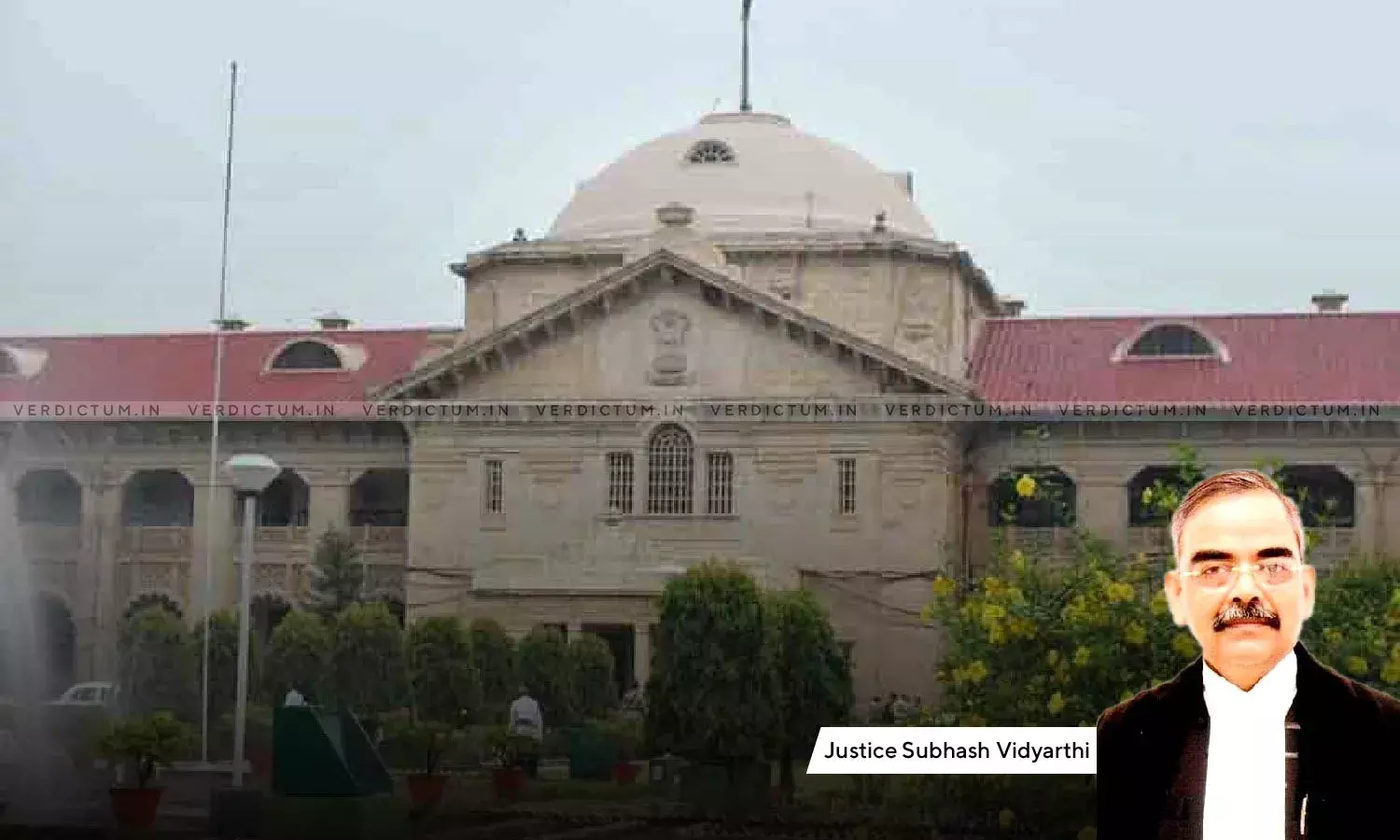When A Statutory Remedy Of Appeal Is Available, It Cannot Be Bypassed Except In Exceptional Case: Allahabad HC
The Allahabad High Court held that when the applicant has a statutory remedy of appeal under Section 14-A of the Scheduled Castes and Scheduled Tribes (Prevention of Atrocities) Act, 1989 (SC/ST Act), there cannot be justification for bypassing the statutory remedy of appeal and invoking the inherent powers.
The Court dismissed the Petition to quash the charge sheet and the order of the court for trial under various sections, including Sections 376 and 504 of the Indian Penal Code, 1860 (IPC) and Section 3(2)(v) of the SC/ST Act.
“When the applicant has a statutory remedy of appeal under Section 14-A of the 1989 Act available to him as a matter of right, and that appeal would also lie before this High Court, albeit before another Bench, there cannot be justification in bypassing the statutory remedy of appeal and invoking the inherent powers of this Court, which are meant to be exercised in exceptional circumstances only”, the Bench of Justice Subhash Vidyarthi observed.
Advocate Rakesh Kumar Agarwal appeared for the Applicant and Additional General Advocate Anurag Verma for the State.
The applicant sought to quash the charge sheet and the order of the court for trial under various sections, including Sections 376 and 504 of the Indian Penal Code, 1860 (IPC) and Section 3(2)(v) of the Scheduled Castes and Scheduled Tribes (Prevention of Atrocities) Act, 1989 (SC/ST Act).
The Court noted “article 215 of the Constitution of India provides that the High Courts shall be Court of records and shall have all the powers of such courts. A court of record is undoubtedly a superior court which is itself competent to determine the scope of its jurisdiction. Section 482 Cr.P.C. does not confer any new powers on the High Court. It merely clarifies that nothing contained in the Cr.P.C. will limit or affect the inherent powers of the High Court to make such orders as may be necessary to give effect to any order under this Code, or to prevent abuse of the process of any Court or otherwise to secure the ends of justice”.
The Bench referred to the case of Union of India v Cipla Ltd., [(2017) 5 SCC 262], and emphasized the importance of adopting a functional test regarding litigation and litigants to determine if forum shopping is occurring. The Bench noted that this test evaluates whether there is a functional similarity between different courts or if a litigant is using tactics to manipulate the system.
The Bench observed that in this matter, the applicant has a statutory right to appeal under Section 14-A of the 1989 Act, which would be heard by a different bench of the High Court and allows for a broader scope of inquiry compared to a Section 482 Cr.P.C. application. Filing under Section 482 Cr.P.C. seems to be a tactic to avoid a specific bench, indicating forum shopping, the Court added.
Therefore, the Court dismissed the application under Section 482 CrPC with the applicant encouraged to pursue the statutory appeal under Section 14-A of the SC/ST Act.
Cause Title: Pawan Kumar Alias Pawan Yadav v State Of U.P. (2024:AHC-LKO:13846)
Appearance:
Applicant(s): Advocates Rakesh Kumar Agarwal and Saksham Agarwal
Respondent(s): Additional General Advocate Anurag Verma












